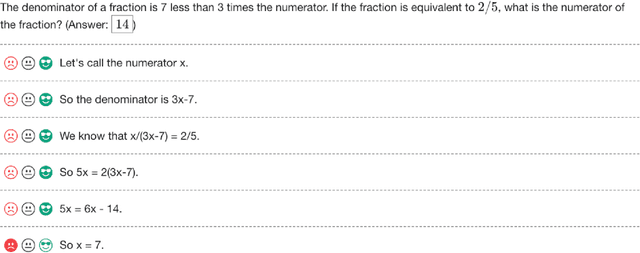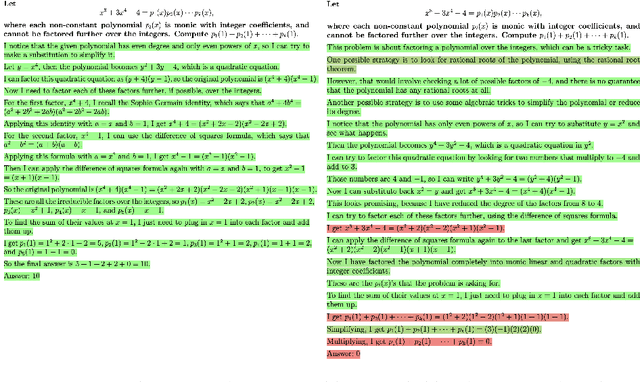Teddy Lee
Let's Verify Step by Step
May 31, 2023



Abstract:In recent years, large language models have greatly improved in their ability to perform complex multi-step reasoning. However, even state-of-the-art models still regularly produce logical mistakes. To train more reliable models, we can turn either to outcome supervision, which provides feedback for a final result, or process supervision, which provides feedback for each intermediate reasoning step. Given the importance of training reliable models, and given the high cost of human feedback, it is important to carefully compare the both methods. Recent work has already begun this comparison, but many questions still remain. We conduct our own investigation, finding that process supervision significantly outperforms outcome supervision for training models to solve problems from the challenging MATH dataset. Our process-supervised model solves 78% of problems from a representative subset of the MATH test set. Additionally, we show that active learning significantly improves the efficacy of process supervision. To support related research, we also release PRM800K, the complete dataset of 800,000 step-level human feedback labels used to train our best reward model.
A Holistic Approach to Undesired Content Detection in the Real World
Aug 05, 2022



Abstract:We present a holistic approach to building a robust and useful natural language classification system for real-world content moderation. The success of such a system relies on a chain of carefully designed and executed steps, including the design of content taxonomies and labeling instructions, data quality control, an active learning pipeline to capture rare events, and a variety of methods to make the model robust and to avoid overfitting. Our moderation system is trained to detect a broad set of categories of undesired content, including sexual content, hateful content, violence, self-harm, and harassment. This approach generalizes to a wide range of different content taxonomies and can be used to create high-quality content classifiers that outperform off-the-shelf models.
 Add to Chrome
Add to Chrome Add to Firefox
Add to Firefox Add to Edge
Add to Edge